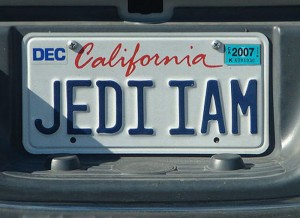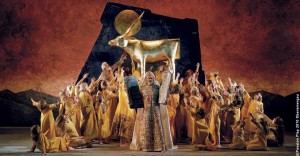O Lord, who may abide in Your tent? Who may dwell on Your holy hill? (Psalm 15:1)
That is a good question. The Apostle Paul’s take on this question could be:
 If I live, it will be for Christ, and if I die, I will gain even more. I don’t know what to choose. I could keep on living and doing something useful. It is a hard choice to make. I want to die and be with Christ, because that would be much better. (Phil 1:21-23)
If I live, it will be for Christ, and if I die, I will gain even more. I don’t know what to choose. I could keep on living and doing something useful. It is a hard choice to make. I want to die and be with Christ, because that would be much better. (Phil 1:21-23)
But whatever things were gain to me, those things I have counted as loss for the sake of Christ. More than that, I count all things to be loss in view of the surpassing value of knowing Christ Jesus my Lord, for whom I have suffered the loss of all things, and count them but rubbish so that I may gain Christ, and may be found in Him, not having a righteousness of my own derived from the Law, but that which is through faith in Christ, the righteousness which comes from God on the basis of faith, that I may know Him and the power of His resurrection and the fellowship of His sufferings, being conformed to His death; in order that I may attain to the resurrection from the dead. Not that I have already obtained it or have already become perfect, but I press on so that I may lay hold of that for which also I was laid hold of by Christ Jesus. (Philippians 3:7-12)
So for King David, for the Apostle Paul—and for the follower of Christ—our greatest goal is to be with the Lord.
Now there are times when David asks questions, but no answer is forthcoming, because like us, he is waiting on the LORD for an answer. But this time, in this short little Psalm, we have the answer to the question. Now understand, the Psalmist doesn’t give the names of those who may abide, who may dwell (only the LORD knows who are His.) But he does give a description. Does it describe you?
He who walks with integrity, and works righteousness, and speaks truth in his heart.
In just this one sentence it talks about your walk, your works, and your words. Your walk is the sort way of saying how you live your life. It’s your worldview. Works are obviously what your do. And words are what you say. It’s your character, your actions and your speech that exhibit integrity, righteous living, and a truthful heart.
For the Lord God is a sun and shield; the Lord bestows favor and honor; no good thing does he withhold from those whose walk is blameless. (Psalm 84:11)
Blessed are those who hunger and thirst for righteousness, for they will be filled. (Matthew 5:6)
May the words of my mouth and the meditation of my heart be pleasing to you, O Lord, my rock and my redeemer. (Psalm 19:14)
Instead, we will speak the truth in love, growing in every way more and more like Christ, who is the head of his body, the church. (Ephesians 4:15)
But wait. You don’t have to wait for Heaven to dwell with God. As a follower of Christ, you have His Spirit dwelling within you here and now:
People who are ruled by their desires think only of themselves. Everyone who is ruled by the Holy Spirit thinks about spiritual things. If our minds are ruled by our desires, we will die. But if our minds are ruled by the Spirit, we will have life and peace. Our desires fight against God, because they do not and cannot obey God’s laws. If we follow our desires, we cannot please God. You are no longer ruled by your desires, but by God’s Spirit, who lives in you. People who don’t have the Spirit of Christ in them don’t belong to him. But Christ lives in you. So you are alive because God has accepted you, even though your bodies must die because of your sins. Yet God raised Jesus to life! God’s Spirit now lives in you, and he will raise you to life by his Spirit. (Romans 8:5-11)
I asked earlier if David’s description describes you. It should. People should see the life-transforming effects that the Spirit of God has upon you. You walk, your works, and your words will show that you are abiding and dwelling with the LORD.

 So I’m driving along the other day, and a guy in a BMW pulls up alongside me, and I notice his license plate: iPhone1. Interesting license plate. Also, my wife and I have been watching The Voice lately, and there was an artist who shared that he was gay, but also a singer. Then there are Harley owners. Bikes, gear, leathers, everything—it’s all about the brand.
So I’m driving along the other day, and a guy in a BMW pulls up alongside me, and I notice his license plate: iPhone1. Interesting license plate. Also, my wife and I have been watching The Voice lately, and there was an artist who shared that he was gay, but also a singer. Then there are Harley owners. Bikes, gear, leathers, everything—it’s all about the brand. When the Psalmist speaks of “Their”, he is speaking about the nations. And these nations had tangible, visible idols. These so-called gods were obviously important to them, because they were made of gold and silver; precious metals for precious gods. But as is often the case with mankind who has not been exposed to the principles and teachings of the Most High God, we get it wrong. Or in this case we get a completely backwards. Note that it says, The work of man’s hands. God is not the work of our hands; we are the work of His hands.
When the Psalmist speaks of “Their”, he is speaking about the nations. And these nations had tangible, visible idols. These so-called gods were obviously important to them, because they were made of gold and silver; precious metals for precious gods. But as is often the case with mankind who has not been exposed to the principles and teachings of the Most High God, we get it wrong. Or in this case we get a completely backwards. Note that it says, The work of man’s hands. God is not the work of our hands; we are the work of His hands. Idols are pretty much no longer silver and gold, but they still are that which are either made by man’s hands or by his imagination. Idols are things which you pursue, instead of One True God. But, we are told: Whatever you do, do your work heartily, as for the Lord rather than for men. (Colossians 3:23) To do otherwise is a dangerous pursuit. More about that next week.
Idols are pretty much no longer silver and gold, but they still are that which are either made by man’s hands or by his imagination. Idols are things which you pursue, instead of One True God. But, we are told: Whatever you do, do your work heartily, as for the Lord rather than for men. (Colossians 3:23) To do otherwise is a dangerous pursuit. More about that next week.